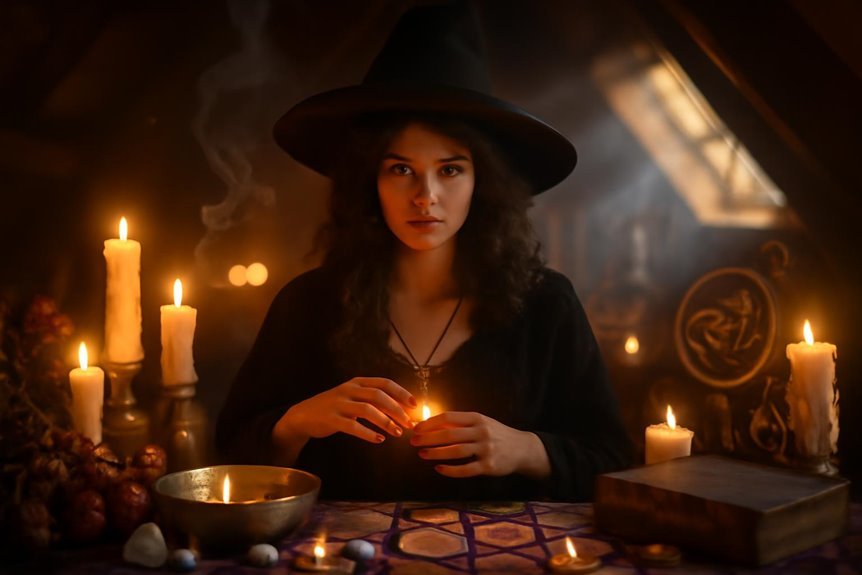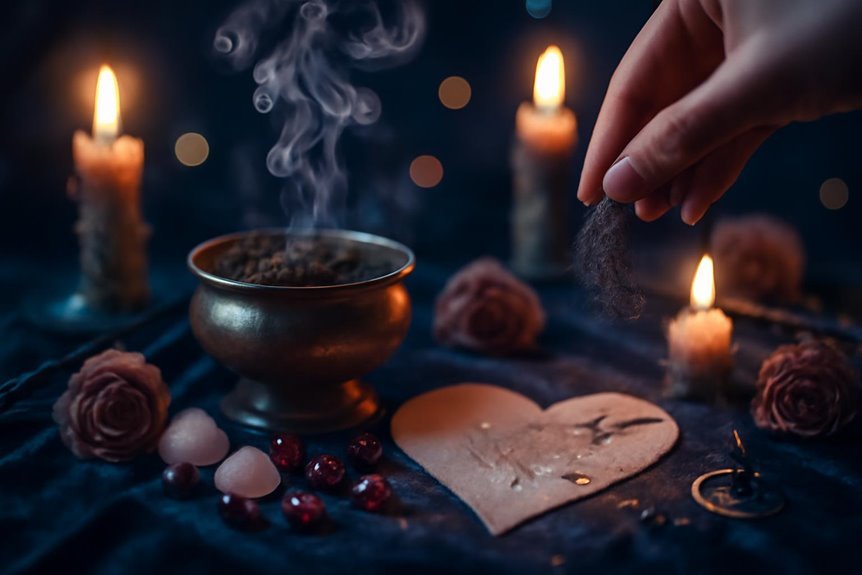- Discover the powerful history of Wicca—the ancient craft behind real love spells and modern spellcasting rituals.
- Learn how love spells channel Wiccan energies to foster new love, restore lost connections, and deepen emotional bonds.
- Understand the vital ethics of Wicca: “An it harm none, do what ye will”, and how it guides safe, positive spellwork today.
- Explore the differences between traditional and eclectic Wicca – and choose the right approach for your romantic needs.
- Get access to authentic love spell services—buy spells online or shop collections from trusted expert spellcasters.
Unlocking the Love Magic of Wicca: From Ancient Traditions to Modern Real Spells
Love spells are woven into the rich tapestry of Wiccan tradition—an ancient craft whose mysteries have transformed lives for thousands of years. Whether you are drawn by curiosity, hope, or heartache, understanding the roots of Wicca is crucial for using spells that truly work.
Ready to transform your love life?
Shop authentic love spells that work now or get your spell cast by the world’s most trusted spellcasters below.
Experience the difference with genuine Wicca-based love spells. Each ritual is designed to align with the energies of the universe, ensuring positive, lasting results for your heart's desires.

The Mysterious Origins of Wicca—and Its Power in Love Spells
Wicca, often called “The Craft,” draws from millennia of magical practice in the British Isles and beyond. Its tapestry threads together the traditions of the Picts, ancient Celts (including the Druids), and other English Mystery Traditions.
While myths sometimes claim Wicca predates Christianity by over 28,000 years, what we know for certain is this: archeological discoveries show that Paleolithic people revered both a Fertility Goddess and a Hunter God. Cave paintings over 30,000 years old depict rituals celebrating union, abundance, and nature’s cycles—reminding us that love magic is truly ancient.
Modern Wicca is directly linked to British magical traditions, crossing the Atlantic in the late 1950s. Experimental covens in the US built on the foundations of Gardnerian, Alexandrian, and Celtic Wicca, each with its unique approach to harnessing energy for spells—including real love spells that deliver proven results.
Order online from verified, professional spellcasters and feel the difference.
Get started with real love spell services
The Lineage of Love: Magic Through the Ages
Wicca embraces wisdom passed down from the mystery schools of Greece, Rome, Egypt, and Persia. Ancient love rites and fertility practices have inspired virtually every modern love spell, whether you seek to bring back a lost lover, deepen existing bonds, or attract new romance.
- Wiccan practices cherish nature, balance, and harmonious relationships.
- Centuries-old grimoires and oral traditions inform how today’s spells are cast for love, healing, and unity.
- Not all witches are Wiccans, but every Wiccan spell draws from these ancient, sacred roots.
Love Spells, Ethics, and the Wiccan Rede
Wiccan beliefs emphasize that humans are part of—not superior to—nature. Ancient Wiccan practitioners were respected for using herbs, healing, and spiritual knowledge to help their communities.
Over time, the rise of the medieval church mistook healing magic for dangerous heresy. Witches were unjustly persecuted, stigmatizing love spells and magical practice. Today’s Wicca reclaims that legacy with an ethic of “harm none”—only channeling energies for positive, loving outcomes.
- Key ethic: “An it harm none, do as you will”—a central tenet for safe, empowering spellwork.
- Authentic love spells always respect consent and free will.
- Modern Wicca stands for freedom of spiritual practice and the right to pursue happiness in love.
How Gerald Gardner Shaped Today’s Love Spells
Gerald Gardner is considered the father of modern Wicca. In the 20th century, his vision helped bring Wiccan traditions and spellwork—especially rituals for love and personal transformation—into the mainstream.
Gardnerian Wicca introduced structured rituals, coven-based initiation, and ceremonial magic, blending ancient pagan wisdom with practical methods for modern life. His teachings inspire countless contemporary love spells, from turning friendship into love to bringing back a lost lover.
Traditional vs. Eclectic Wicca: Which Path for Love?
Traditional Wicca includes established lineages like Gardnerian or Alexandrian. Adherents follow specific rituals, often working within covens and maintaining formal initiations.
Eclectic Wicca, on the other hand, encourages personal exploration—drawing inspiration from multiple traditions to create unique love spells. This flexibility allows you to blend custom ingredients, personal intentions, and cultural practices, tailoring magic to fit your relationship needs.
- Traditional Wicca: Follows set rituals, often coven-based, with clearly defined initiations and historic lineage.
- Eclectic Wicca: Mix-and-match approach, blending various pagan, New Age, and even folk traditions for customized spells.
- Either approach can create effective, ethical love spells—the key is intention and respect for spiritual energy.
Key Elements of Wiccan Magic for Transforming Your Love Life
- Reverence for Nature: Every spell, including those for love, is crafted to harness and honor natural cycles and energies.
- The Wiccan Rede: “An it harm none, do what ye will”—always guides spellcasting for positive, consensual results.
- Duality: Wicca reveres both Goddess and God aspects, infusing spells with balanced, creative energies.
- Seasonal Festivals: Celebrating the Wheel of the Year aligns love spells with powerful, meaningful cosmic moments.
Covens and Community: Magic Is Stronger Together
Many love spells are performed within covens—a supportive magical community traditionally consisting of up to 13 members. Covens amplify energy, provide shared wisdom, and create the ideal environment for effective, lasting spellwork.
However, solitary witches are just as empowered. Practicing alone, you can draw on the teachings of the Love Spells Collection to build your own rituals and enchantments in privacy and at your own pace.
Explore Popular Love Spells
- Bring Back Lost Lover Love Spell
- Lust for Me Love Spell
- Mend a Broken Heart Healing Love Spell
- Deliciously In Love Spell
- See All Love Spells →
⭐⭐⭐⭐⭐ “My faith in love was restored!”
I tried the Bring Back Lost Lover Spell on Spells and Psychics. Within weeks, my partner and I were reunited. Absolutely life-changing! – Jessica, Cape Town
⭐⭐⭐⭐⭐ “Real love magic that works fast.”
The Lust for Me Love Spell brought passion and joy back into my relationship. Thank you so much! – Ahmed, Durban
⭐⭐⭐⭐⭐ “Trust the spellcasters here!”
I was skeptical but the service and results were amazing. My soulmate found me once I used the Unconditional Love Spell. Truly gifted. – Carmen, Johannesburg
Further Resources for Exploring Wicca & Real Love Spells
- The Spiral Dance by Starhawk – Feminist Wiccan spirituality & ritual magic
- A Witches’ Bible by Janet and Stewart Farrar – Comprehensive Wiccan understanding
- Love Spells Collection – Shop or learn more about powerful spell options
Shop real love spells that work today or contact our expert spellcasters for a personalized consultation. Your love story can change—let’s manifest the future you desire!
With 20+ years of experience as a Wiccan high priestess, Belinda has helped thousands find love, healing, and spiritual fulfillment. Specializing in love spells and ancient Wiccan rites, her guidance is rooted in authentic tradition and modern ethics.
Contact Belinda or the Spells and Psychics team at Contact Us for customized spell advice.




